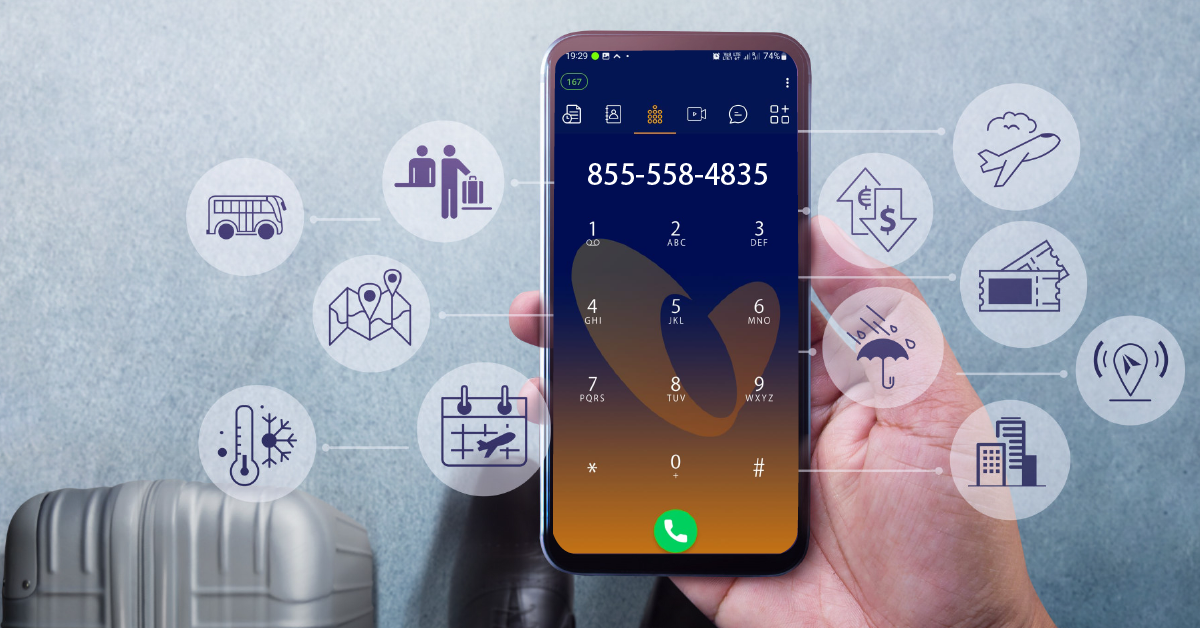From Chalkboards to Smartphones: Embrace the Future with a Business Phone Service

4 min read
Business Phone Services has witnessed an incredible success rate in this technology driven generation. The journey of communication technology has been extraordinary, evolving from the humble chalkboards and telegraphs to the sophisticated smartphones and Unified Communications. Future Business phone service is becoming the foundation for effective organizational communication and teamwork.
Businesses now use innovative technologies to streamline their communication processes and increase productivity, replacing the era of traditional landlines and static phone systems.
This blog explores the development of business phone services historically, the appearance of contemporary telecommunications tools, the introduction of unified communications, and how adopting the future of telephony services can revolutionize businesses of all sizes.
Evolution of Business Phone Services: From Chalkboards to Telephones
Before the invention of telephones, communication was a tedious process, primarily relying on physical means. In classrooms, chalkboards and hand-written notes were the primary teaching and learning medium between teachers and students. Similarly, messages were sent via messenger or written memos in businesses, often leading to delays and miscommunication.
The first telephone was patented by Alexander Graham Bell in the year 1876, marking a significant turning point. This innovation revolutionized communication by enabling long-distance, real-time communication between people. Businesses quickly adopted telephones due to their potential for increasing productivity and facilitating quicker decision-making.
Evolution: From Operator-Connected Calls to PBX
As telephone usage increased, manual operator systems were set up to connect calls between parties. But as demand increased, these systems became laborious and time-consuming. The need for automation led to the development of Private Branch Exchange (PBX) systems in the early 20th century. Communication within organizations was significantly streamlined by cloud based PBX, which allowed businesses to manage internal calls without relying on manual operators.
The advent of PBX marked a turning point, as businesses could now have their internal phone networks, enabling efficient internal communication and reducing reliance on external telephone operators. PBX systems paved the way for enhanced productivity and collaboration among employees.
Business Phone Systems in the Digital Age
Business phone systems underwent a significant transformation due to various developmental processes in digital technology in the late 20th century. Systems for private branch exchange (PBX) have replaced analog systems because they are more dependable, flexible, and have more modern features.
Digital PBX systems allow businesses to manage numerous lines, create extensions, and set up voicemail services, all from a single platform. Call forwarding further increased employee connectivity and accessibility by sending calls to various devices and locations.
VoIP Revolution: The Beginning of Cloud-Based Services
Voice over Internet Protocol (VoIP) technology became more prevalent at the beginning of the twenty-first century, a significant turning point in the development of phone services. VoIP made transmitting calls via the Internet possible, excluding the need for traditional phone lines and drastically cutting communication costs.
Cloud-based VoIP systems have further transformed telephony services, allowing seamless communication with an internet connection from any location. Adopting cloud technology gave businesses more flexibility, scalability, and cost-effectiveness. Additionally, organizations could combine VoIP with collaboration techniques like teleconferencing and instant messaging to create a complete, Unified Communications environment.
Integration of Communication Channels in Unified Communications (UC)
The emergence of Unified Communications (UC) took business phone services to the next level. Voice calls, video conferencing, instant messaging, email, and collaboration tools are just a few communication channels combined into a single, unified platform known as a UC platform. No matter where they stay or what method of communication they prefer, this integration promotes seamless communication and collaboration among employees.
UC enables businesses to move beyond siloed communication tools and embrace a more holistic approach to collaboration. The simplicity of switching between different channels improves employee responsiveness and productivity. Additionally, incorporating UC into business applications and customer relationship management (CRM) platforms equips staff to provide improved customer experiences.
Power of Contemporary Business Phone Services: Embracing the Future
- Mobility and Remote Work: Modern phone services support the demand for a mobile and remote workforce. Employees can access their telephony services from their smartphones, ensuring constant connectivity and productivity even when they are out of the office with the help of smart communication apps.
- Video Conferencing and Virtual Collaboration: Video conferencing capabilities allow face-to-face interactions between remote team members, fostering stronger connections and improving the efficiency of meetings. Virtual collaboration tools facilitate real-time document sharing, screen sharing, and whiteboarding, enabling seamless teamwork.
- AI-Powered Customer Support: Business phone services integrated with AI-powered chatbots enable automated responses to customer queries. Leading to quicker issue resolution and improved customer satisfaction.
- Analytics and Insights: Advanced cloud services provide valuable analytics and insights into call volumes, response times, and customer interactions. Businesses can use this information to optimize communication strategies and make informed decisions.
- Scalability and Cost-Effectiveness: Cloud-based services offer scalability and cost-effectiveness. Businesses can quickly scale their communication infrastructure as their needs grow without the burden of investing in expensive hardware.
Future Trends for Business Phone Services
The future of Business Phone services holds exciting prospects as technology continues to evolve:
- The widespread use of 5G technology will improve mobile communication even further by enabling super-fast data transfers and more dependable connections.
- It may integrate with Internet of Things (IoT) gadgets, enabling automated communication and seamless connectivity with smart devices.
- They will likely incorporate virtual reality (VR) and augmented reality (AR) technologies, enabling remote training sessions and immersive teamwork experiences.
- Blockchain technology may become widely used in business phones to ensure secure and tamper-proof communication.
Conclusion
The evolution of business phone services from chalkboards to smartphones has been remarkable. Now-a-days businesses rely on the advanced communication tools, like Unified Communications, to streamline communication and collaboration within their organizations. Embracing modern phone services empowers companies to adapt to the fast-changing digital landscape, enhance productivity, and deliver exceptional customer experiences. As technology advances, the future of business phone services promises even more exciting possibilities to frame how businesses communicate and collaborate in the upcoming years.
We, at Vitel Global Communications has upgraded ourselves as per the need of the users in the market. From small business to the huge organizations, we offer tailored calling solutions for better productivity.
Upgrade Your Communication
Business phone service can revolutionize your business operations and stay ahead of the curve.
Published: August 1st, 2023
Subscribe to Our Latest Updates
Get monthly product and feature updates, the latest industry news, and more!







